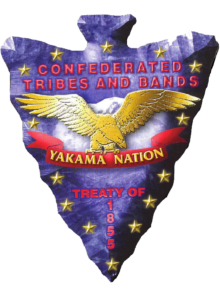×
Honoring Native American Culture and Heritage
Northwest Public Broadcasting proudly presents stories from Northwest tribes featuring First Food traditions, land management practices and efforts towards food sovereignty.
This reporting accompanied the release of the Ken Burns documentary, The American Buffalo. Learn More
Reciprocity
First Foods are vital to Native American culture. NWPB highlights the ways the Confederated Tribes of the Umatilla Indian Reservation are managing the Rainwater Wildlife Area in southeastern Washington and its significance in ensuring tribal access to important foods like berries and big game.
Perpetuating Culture Across Generations
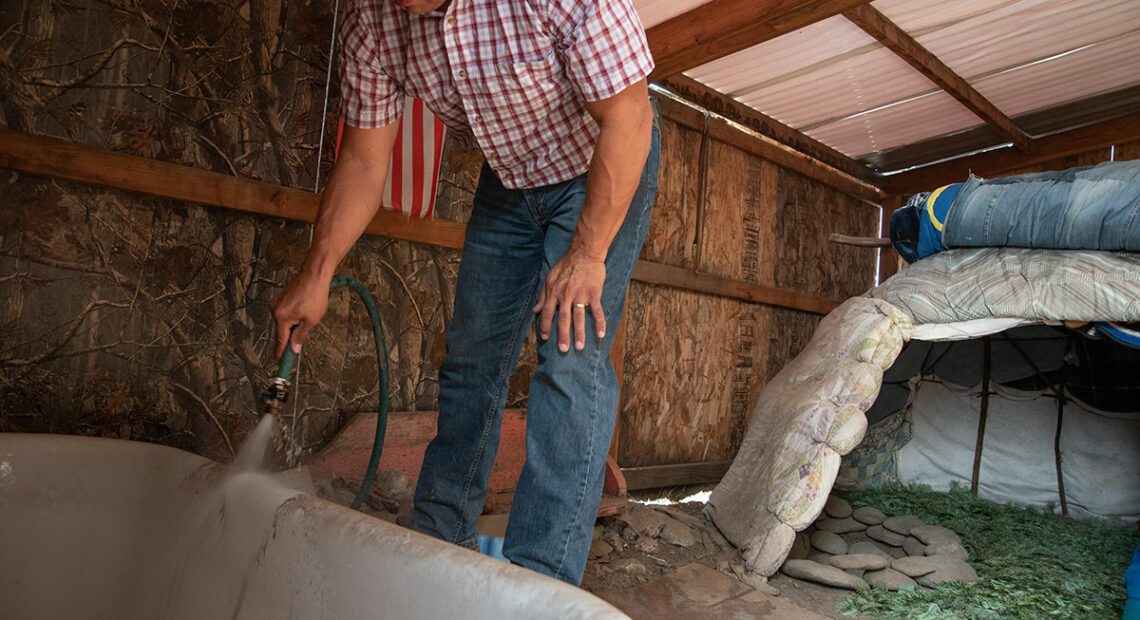
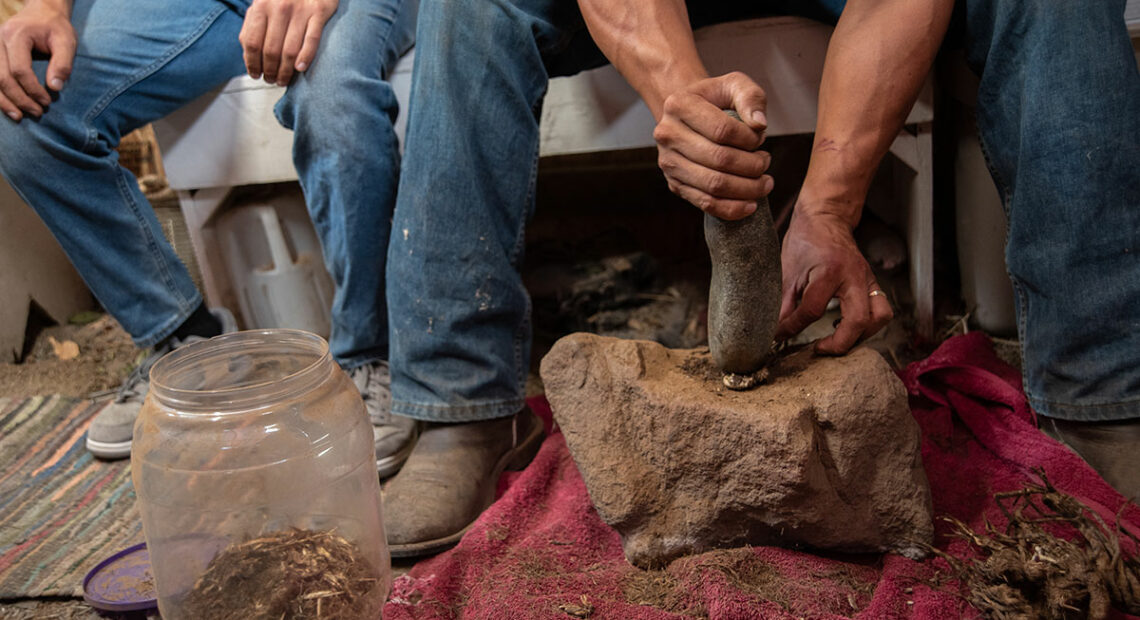
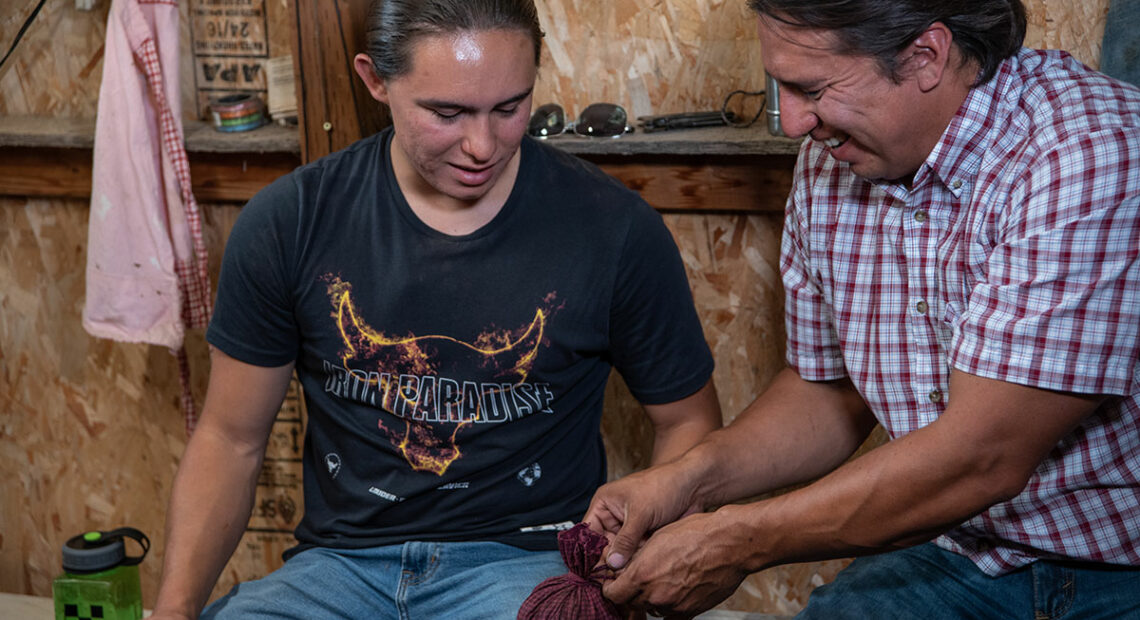
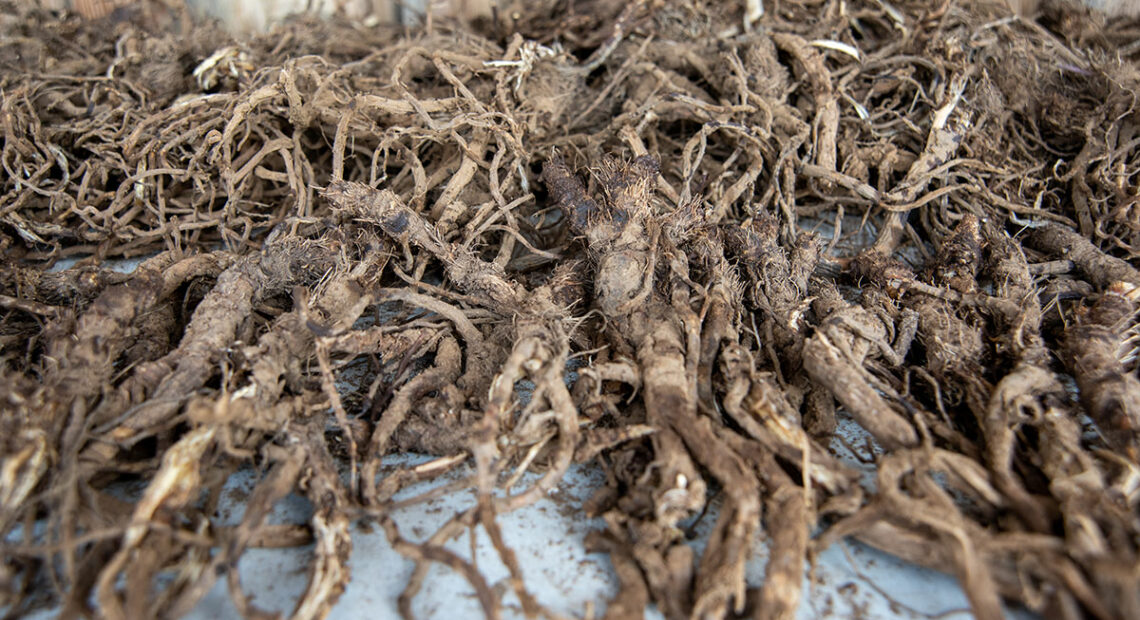
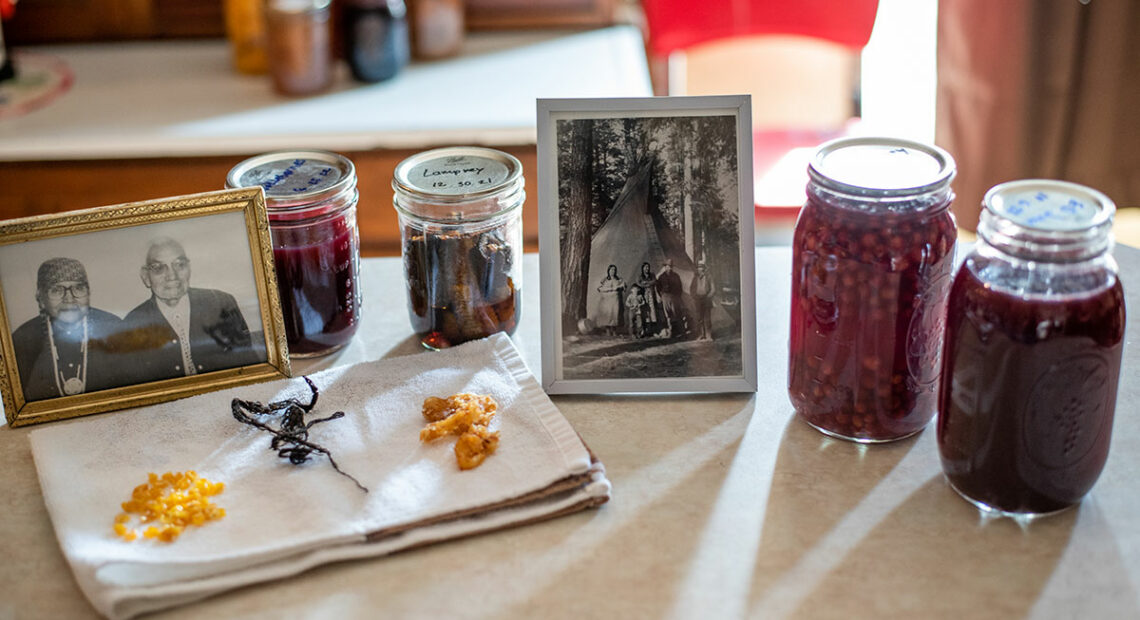
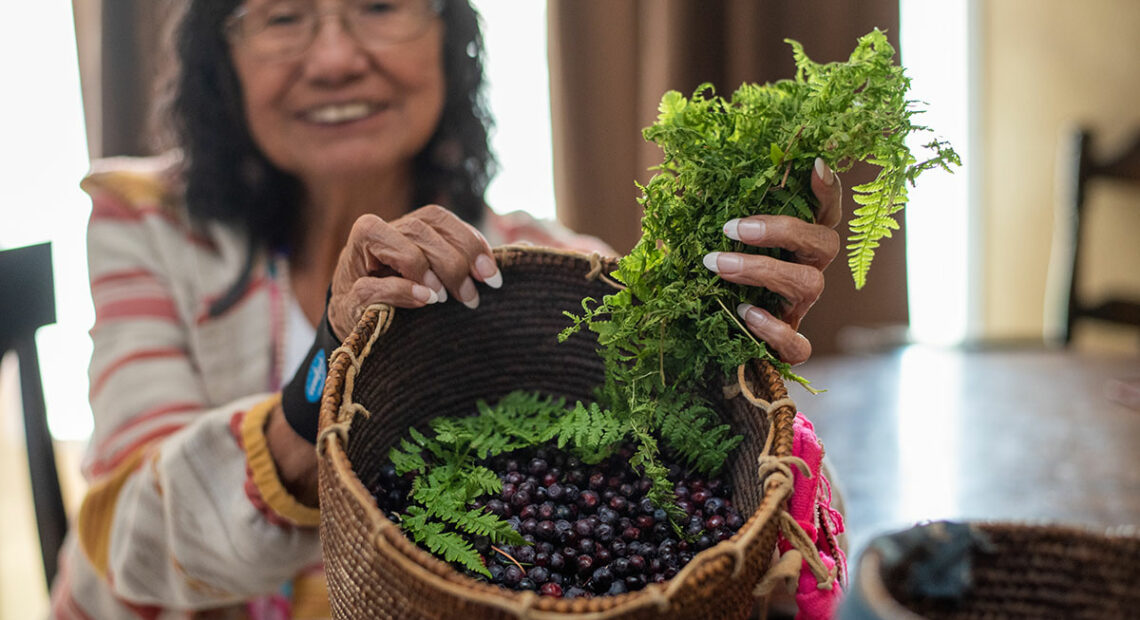
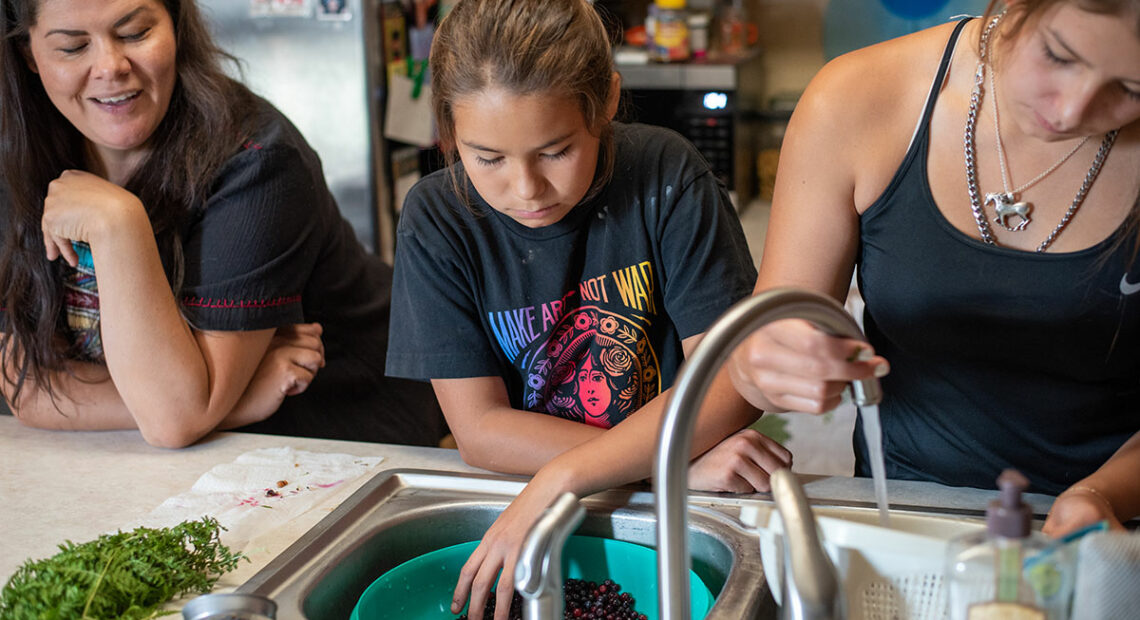
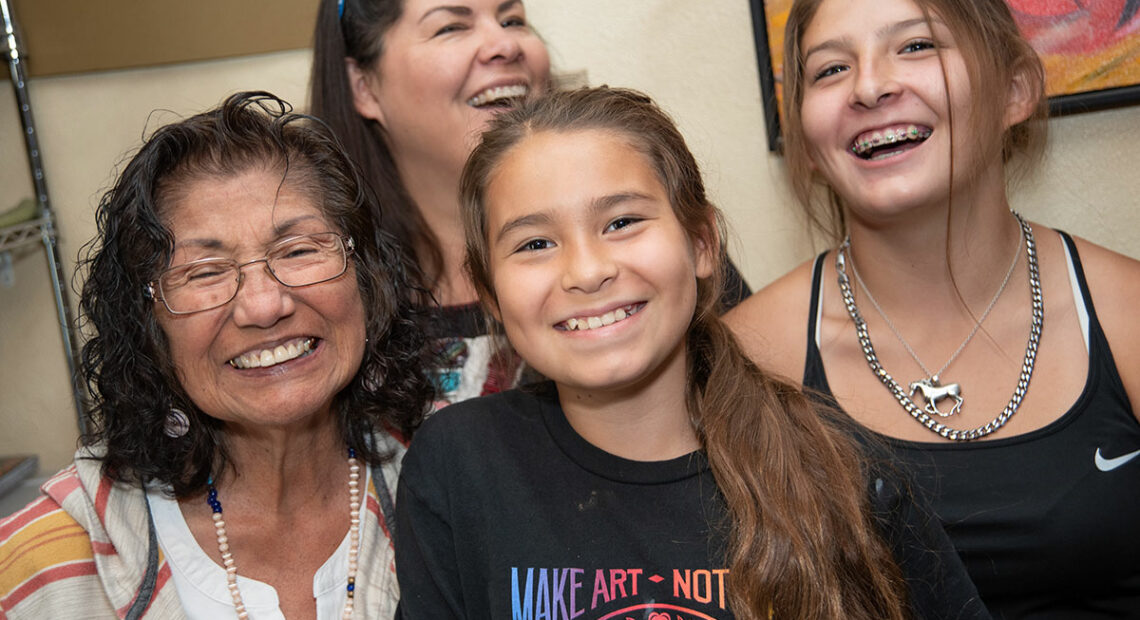
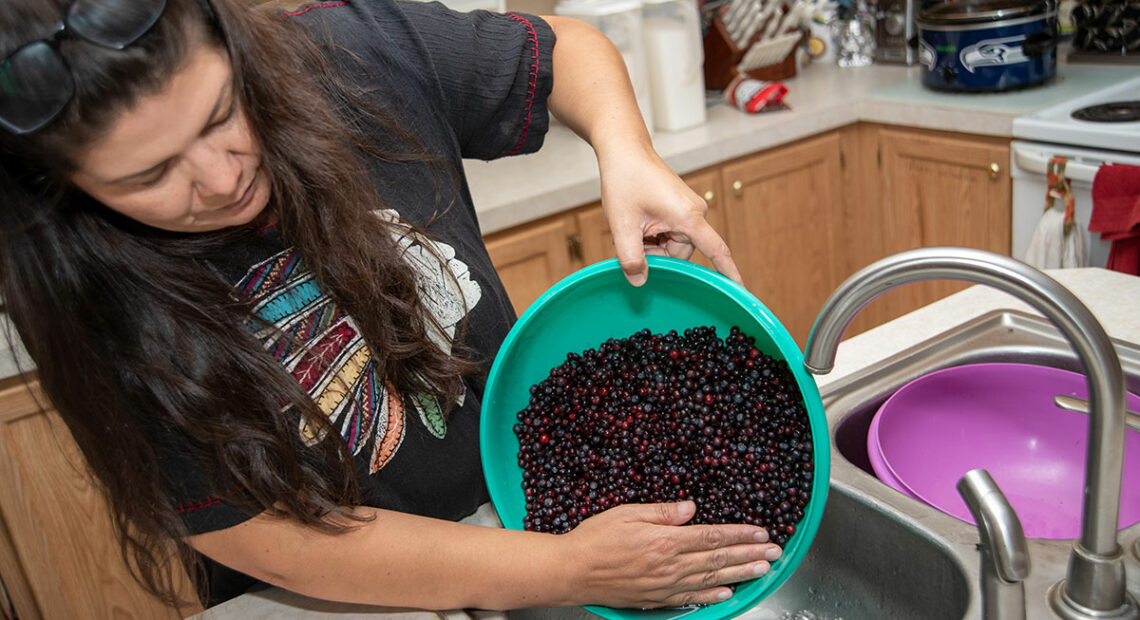
When Althea Huesties-Wolf first started to dig roots and gather berries, culturally important first foods for members of the Confederated Tribes of the Umatilla Indian Reservation, she was still just a kid, 8 or 9 years old, as her mom remembers.
She has been watching her mother gather, dry and freeze foods for ceremonies for years.
“When she was 9, she wanted to do it for the people,” Huesties-Wolf’s mother, Alvina Burke, said. “So that was dedicating her life to work for the people, to feed them.”
Digging isn’t an easy task, she said. Back in those days, First Foods weren’t necessarily a priority. Now, they’re part of the tribes’ mission statement. It was a mission Burke taught her children from the beginning – patiently, in the way only a mother can.
“My mission was to help them learn so that they would continue on after I couldn’t do anything. Or when I left this world, they’d be able to carry on what I taught them and what my grandparents and great grandparents shared with them,” Burke said.
When she gathers, Burke uses a basket her grandmother gave her when she was 22 years old. It’s woven cedar bark, still in good condition.
“I guess she figured I was old enough to get the heirlooms from our people,” Burke said. “My grandmother said, ‘Your great, great grandmas used this basket.’”
These sorts of traditions sometimes place a heavy burden on the younger generation, Huesties-Wolf’s son, Aiden Wolf, said. In an effort to carry on traditions, Aiden and his cousins recently went salmon fishing on their own – and came back with a catch.
Sitting in their personal sweat lodge, Aiden’s father, Jeremy, couldn’t hide his pride in his son.
“I was scared, not necessarily for your safety, but I wanted you to be successful,” Jeremy Wolf told his son. “It was an important time, I think, to have you do that.”
Still, Aiden said, he worries.
“We’ve just been scared that we’ll grow up, and we’ll be in like my father’s position, in our 40s, and the younger kids will be asking us questions, and we’re afraid that we won’t interpret it how our parents and our grandparents did,” Aiden Wolf said.
Even so, he said his family has set him up well for the future.
“Overall, in this region, we all share the same practices and respect for our land and mutuality we have with animals,” Aiden Wolf said. “So I’ve just been very grateful that my parents and my grandparents and my uncles and aunties have constantly been reminding me about this outlook on the world, this outlook on our land and how important it is.”
What Are First Foods
The Confederated Tribes of the Umatilla Indian Reservation (CTUIR)—made up of the Cayuse, Walla Walla, and Umatilla tribes—have a reciprocal relationship with water, salmon, deer, celery, roots and huckleberries. These and other traditional foods, such as lamprey, elk, bison, antelope, and chokecherries, are considered First Foods and are central to the tribes’ culture and way of life. First Foods are foundational to the tribes’ Creation story; starting with salmon, the animals and plants sacrificed themselves for the people and, in exchange, the people promised to take care of them. The community honors First Foods with feasts and ceremonies throughout the year.
The CTUIR First Foods Mission is to “protect, restore, and enhance the First Foods–for the perpetual cultural, economic, and sovereign benefit of the CTUIR through population and habitat management goals & actions; and natural resource policies and regulatory mechanisms.”
CTUIR Manages Tribal Lands for First Foods
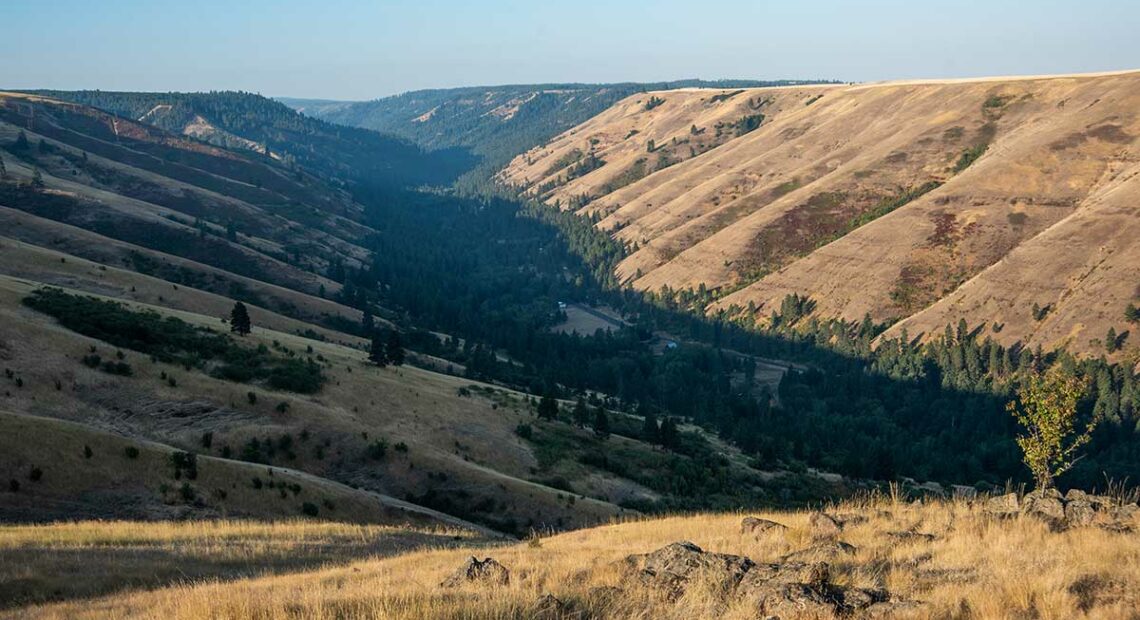
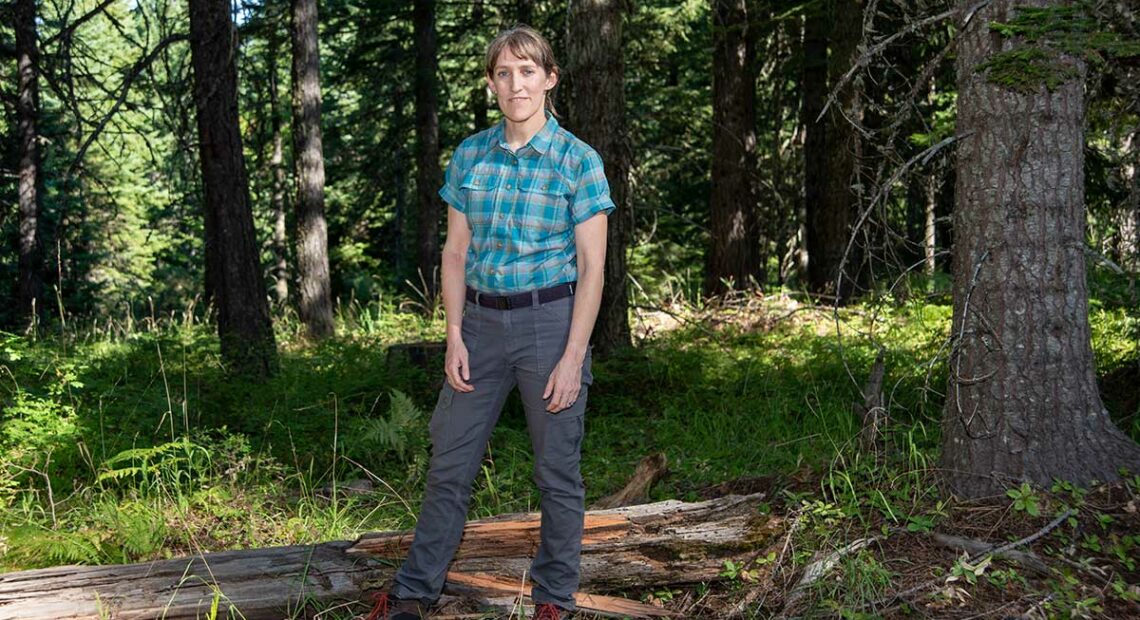
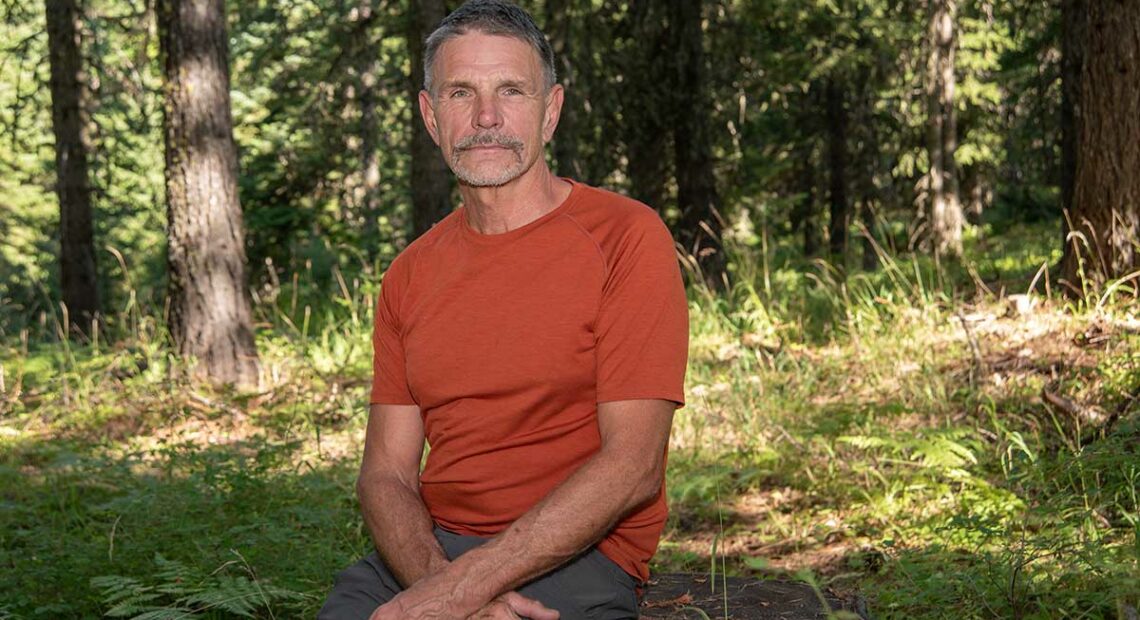
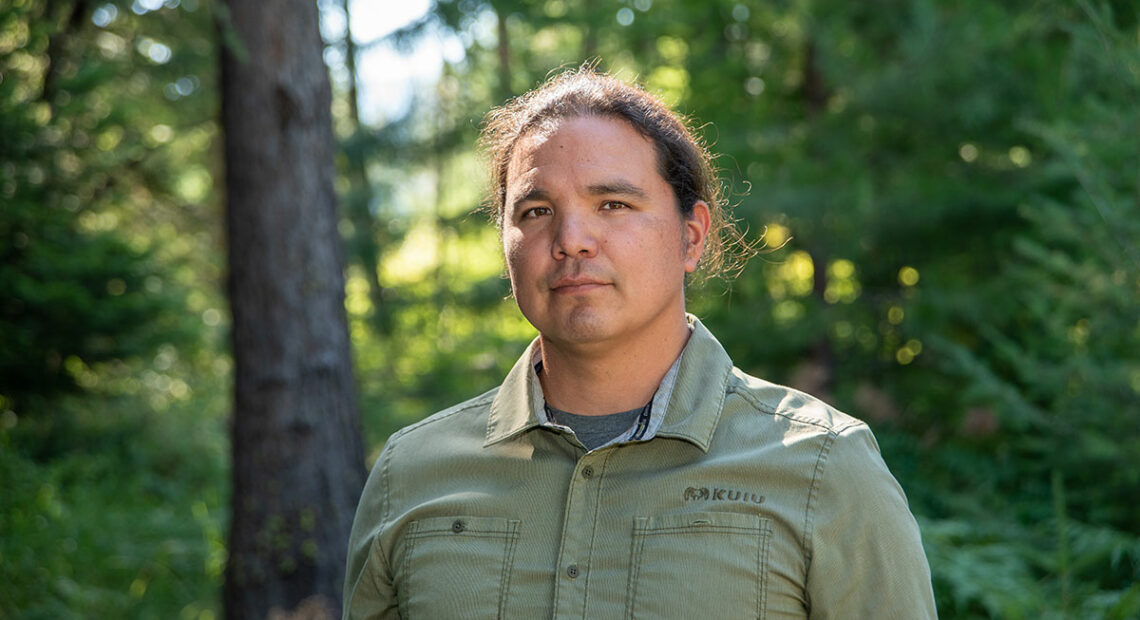
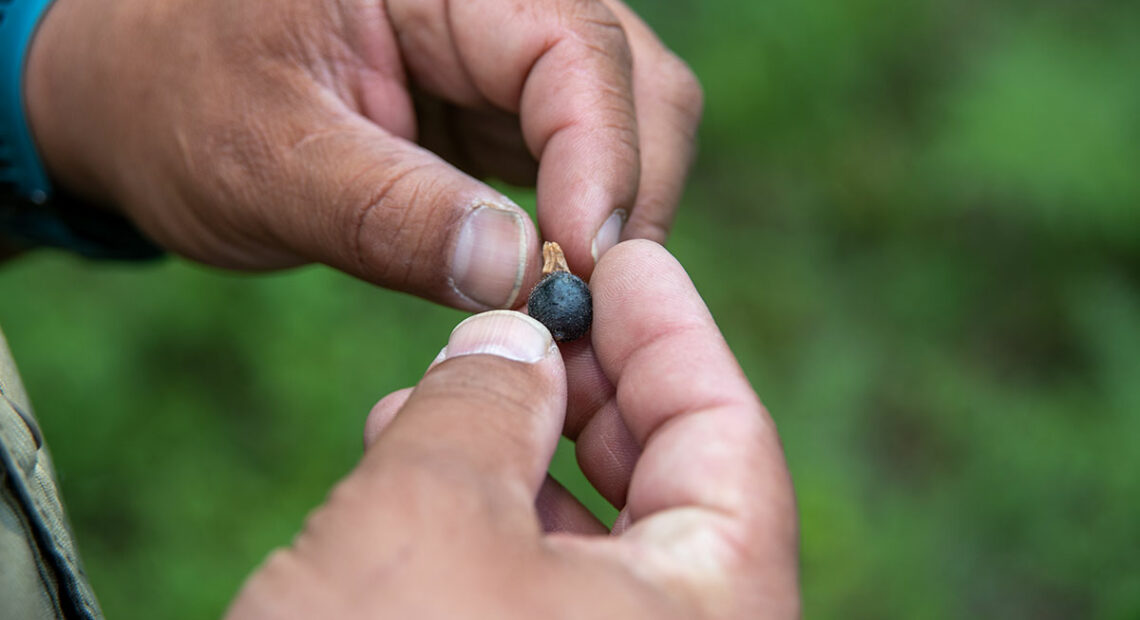
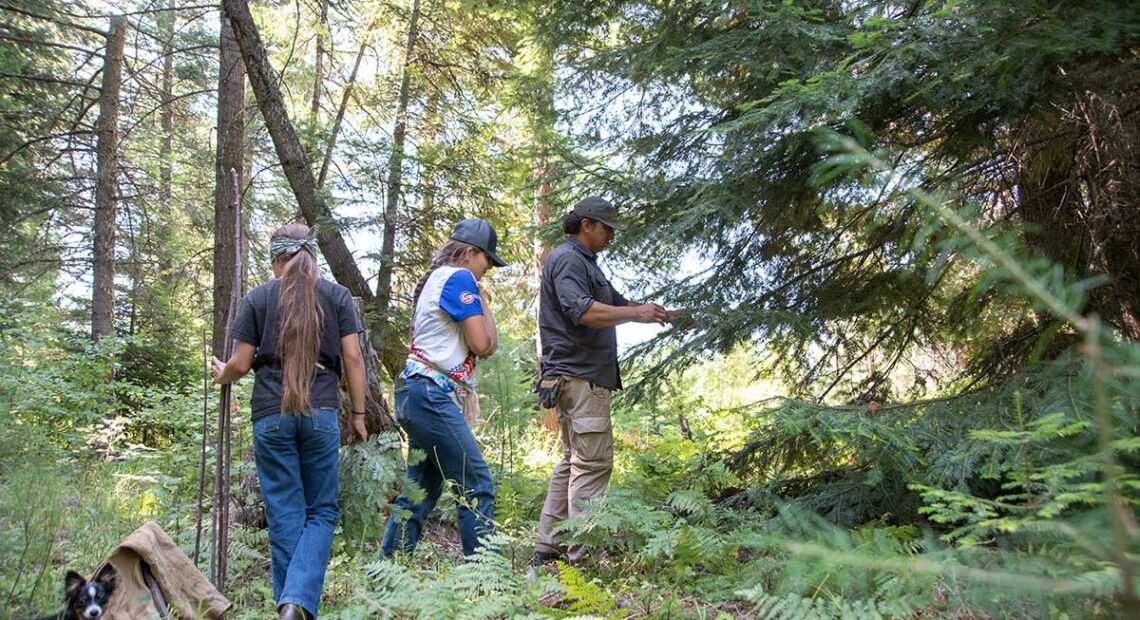
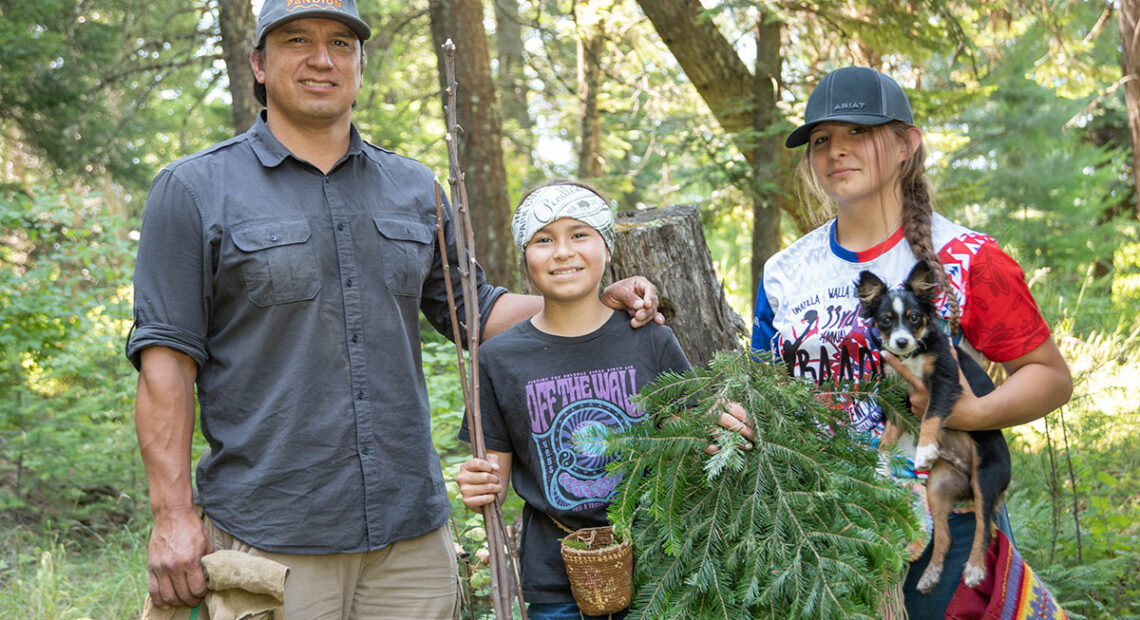
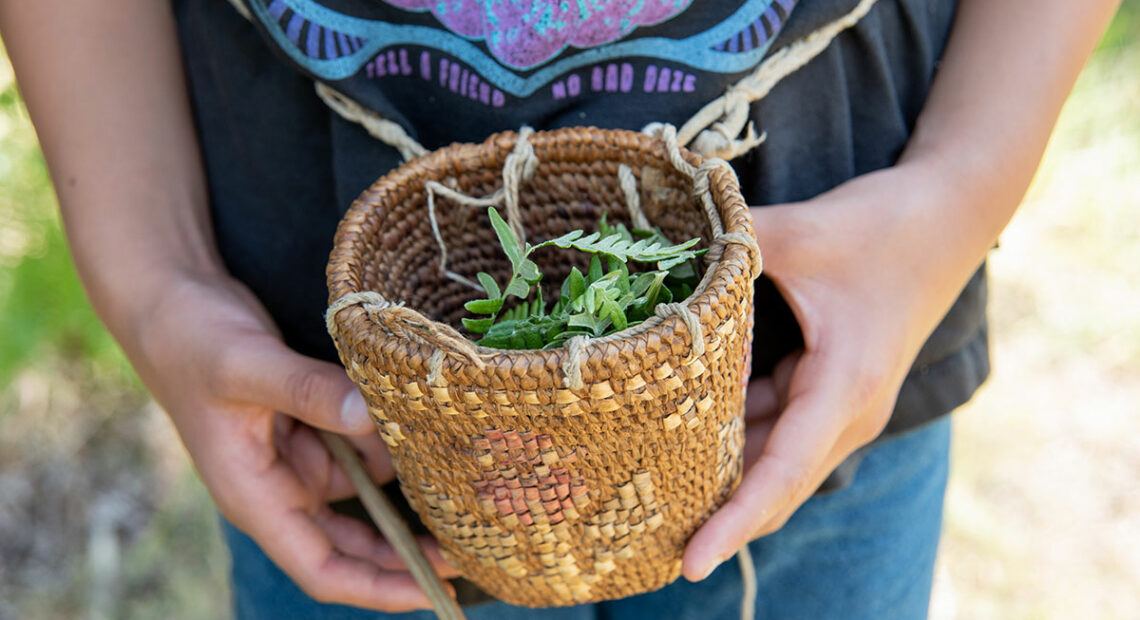
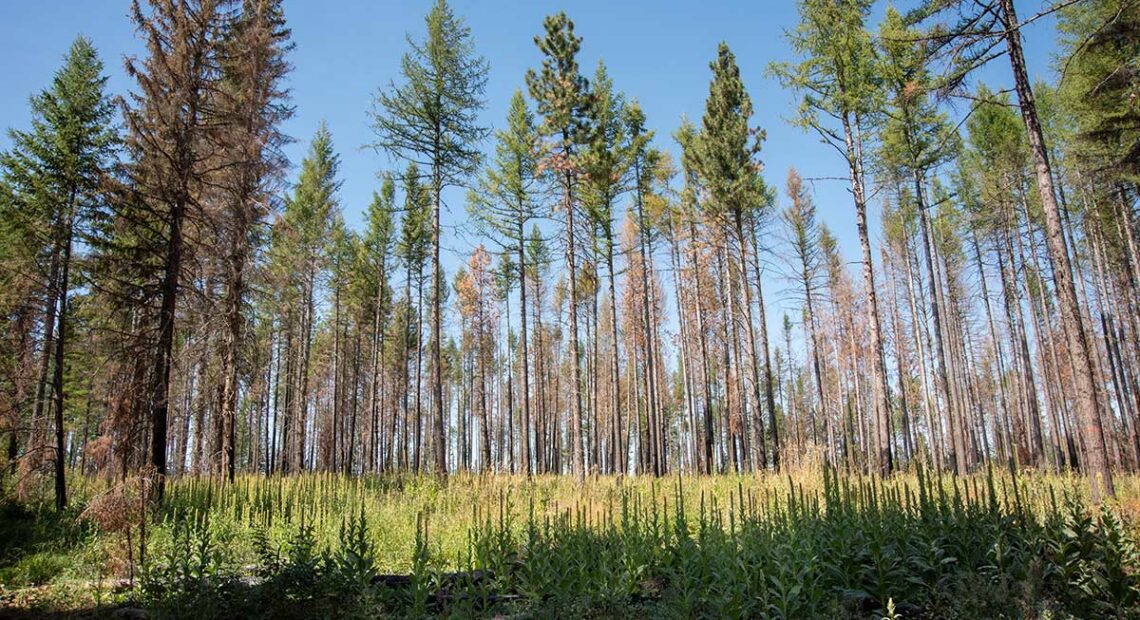
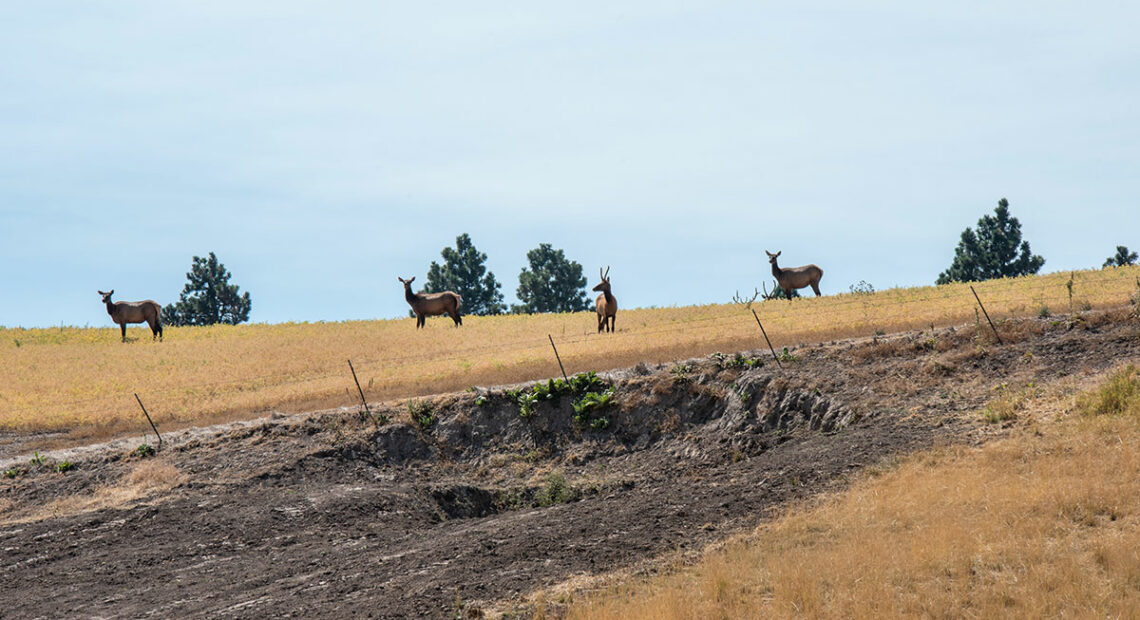
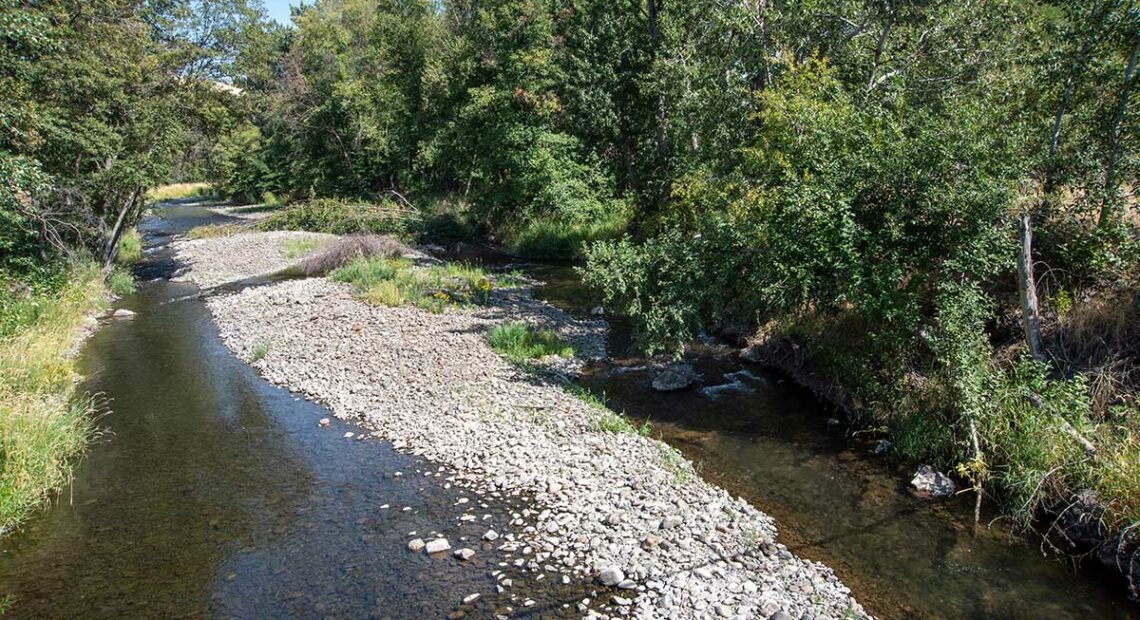
For tribes throughout the nation, protecting access to culturally important foods is a top priority. The Confederated Tribes of the Umatilla Indian Reservation in northeastern Oregon say their First Foods policy drives most of the land management decisions they make, like at the Rainwater Wildlife Area in southeastern Washington.
There, tribal members can gather roots and berries, hunt elk and deer and fish for salmon on the south fork of the Touchet River.
“Our traditional foods, our First Foods, are vital to our culture from our first breath to our last,” said Andrew Wildbill, the wildlife program manager for the tribes’ Department of Natural Resources.
Land managers said they’ve seen more ungulates migrate through the area as the tribe has improved habitat by thinning forests and prescribed burning.
“Fire is a really important component of these ecosystems here at Rainwater,” said Lindsay Chiono, a forest ecologist for the tribes. “It plays a really important role with respect to the wildlife species and the understory plants, which are important to the tribes directly as first foods and also to the elk and deer, which are themselves first food species.”
Buffalo & Food Sovereignty
NWPB explores how a growing buffalo herd is helping to support tribal food sovereignty on the Yakama Nation in south central Washington.
A Growing Bison Herd Supports Food Sovereignty
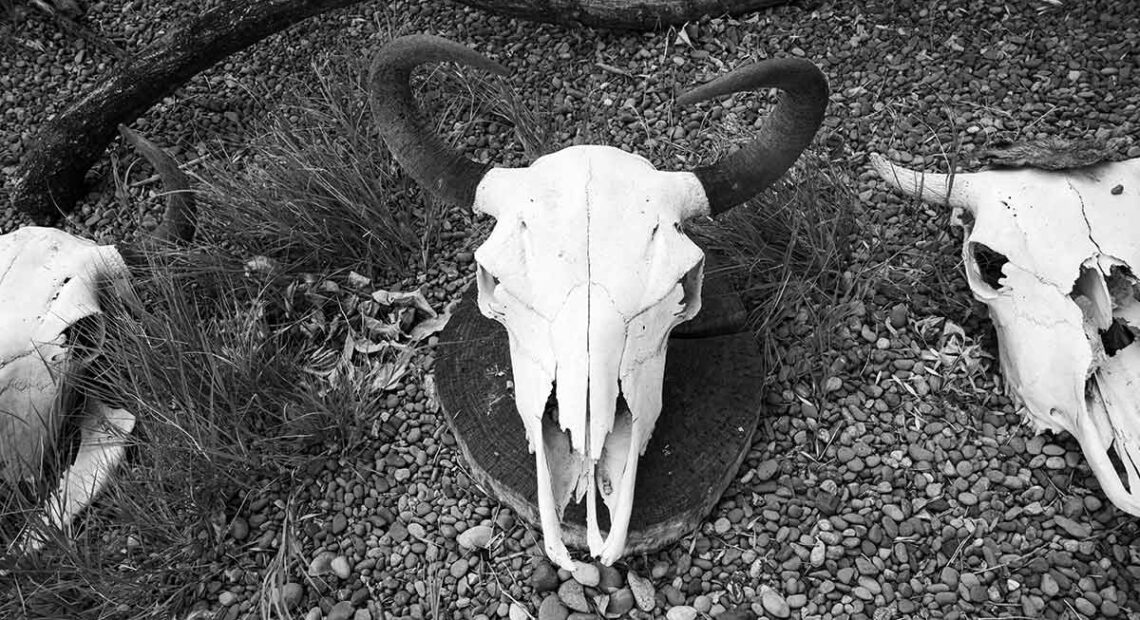
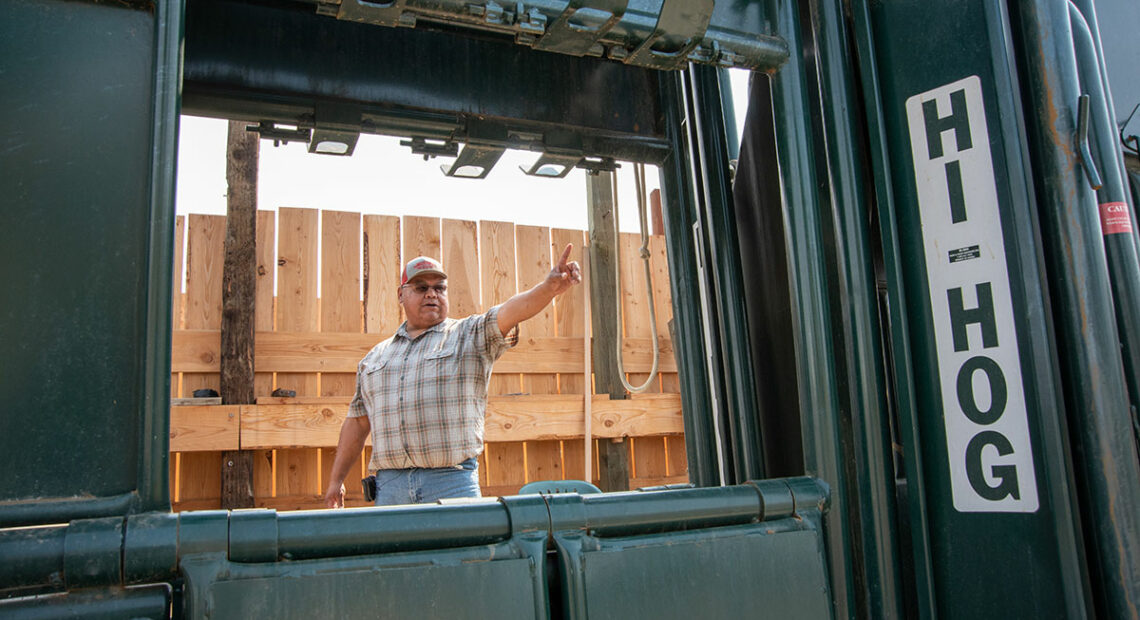
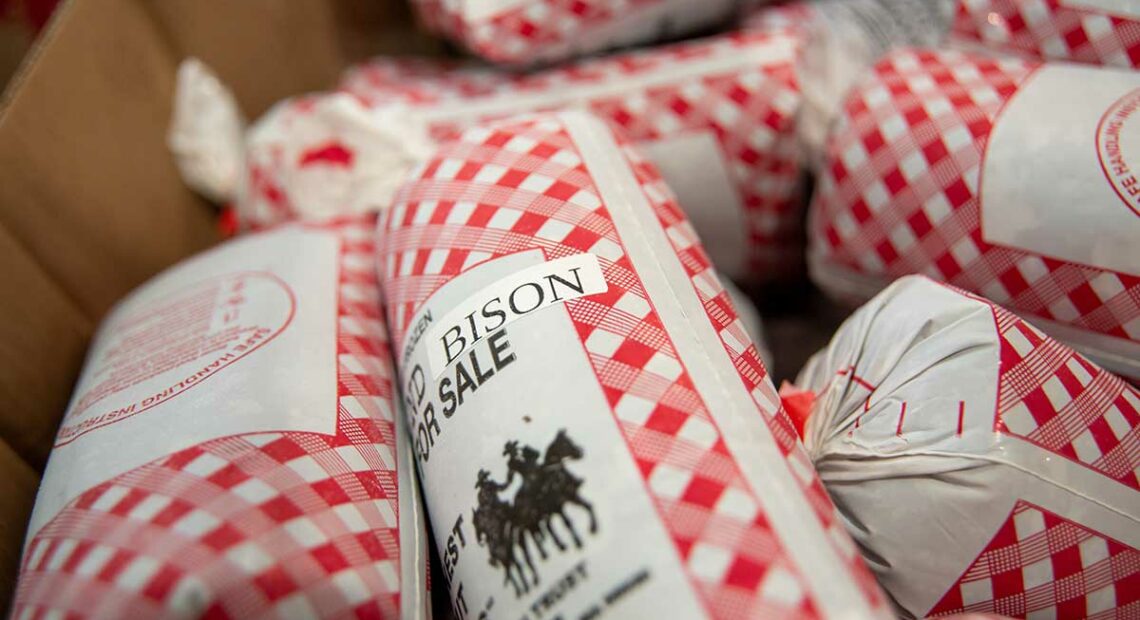
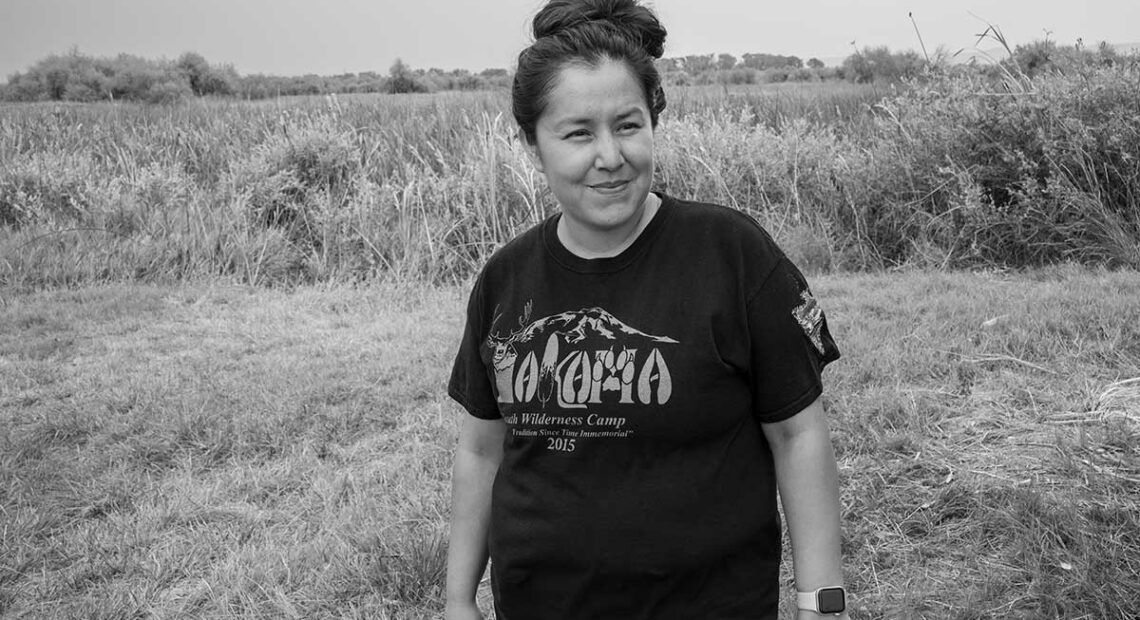
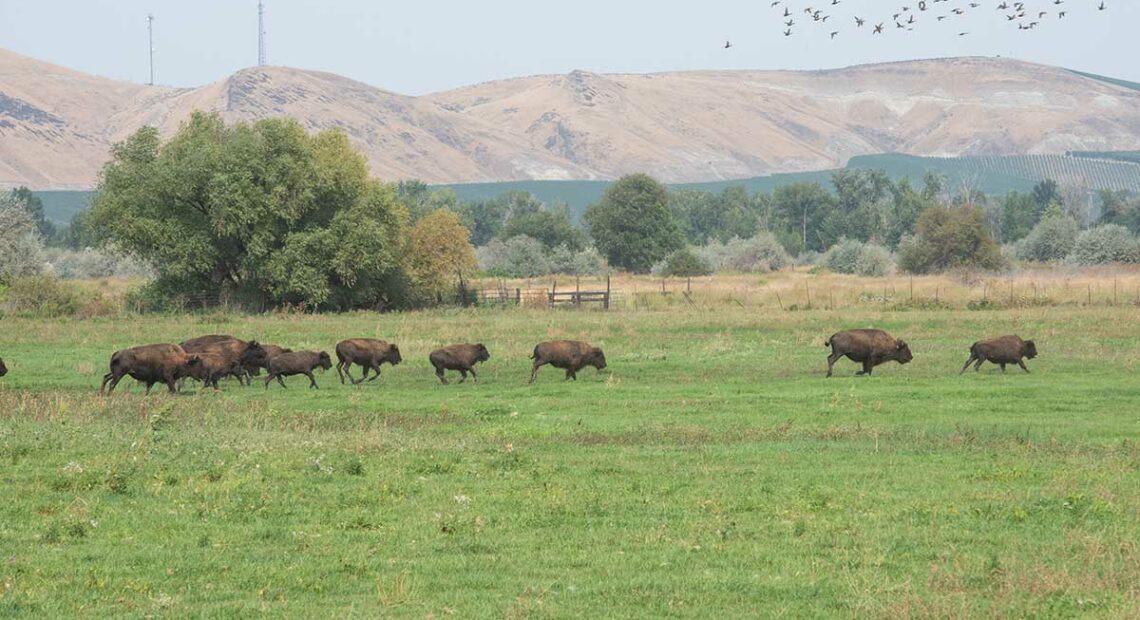
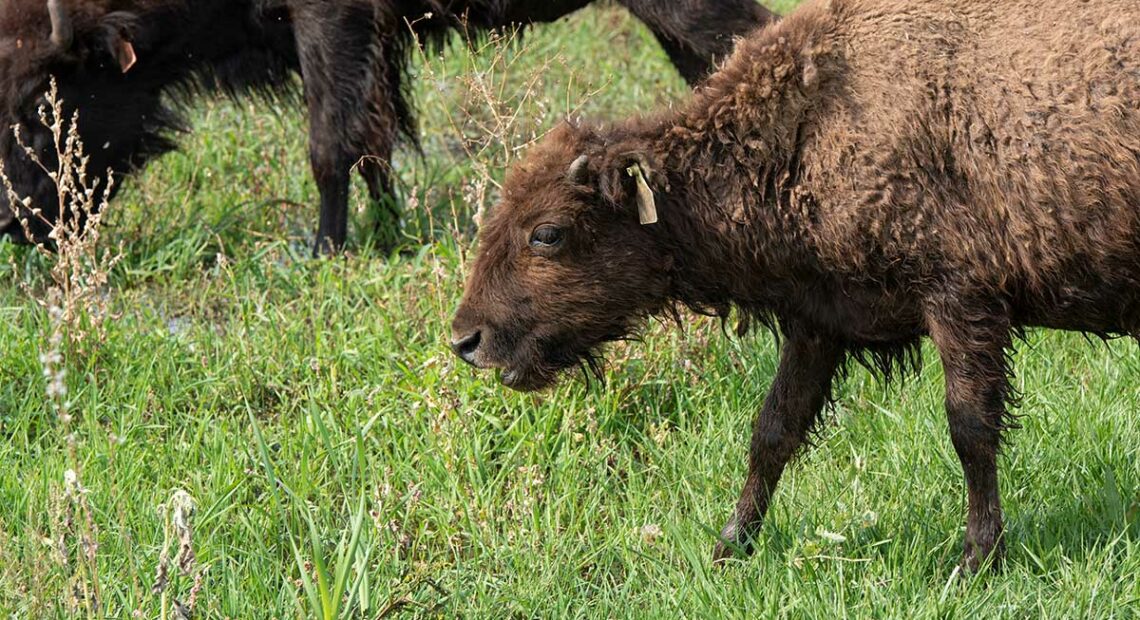
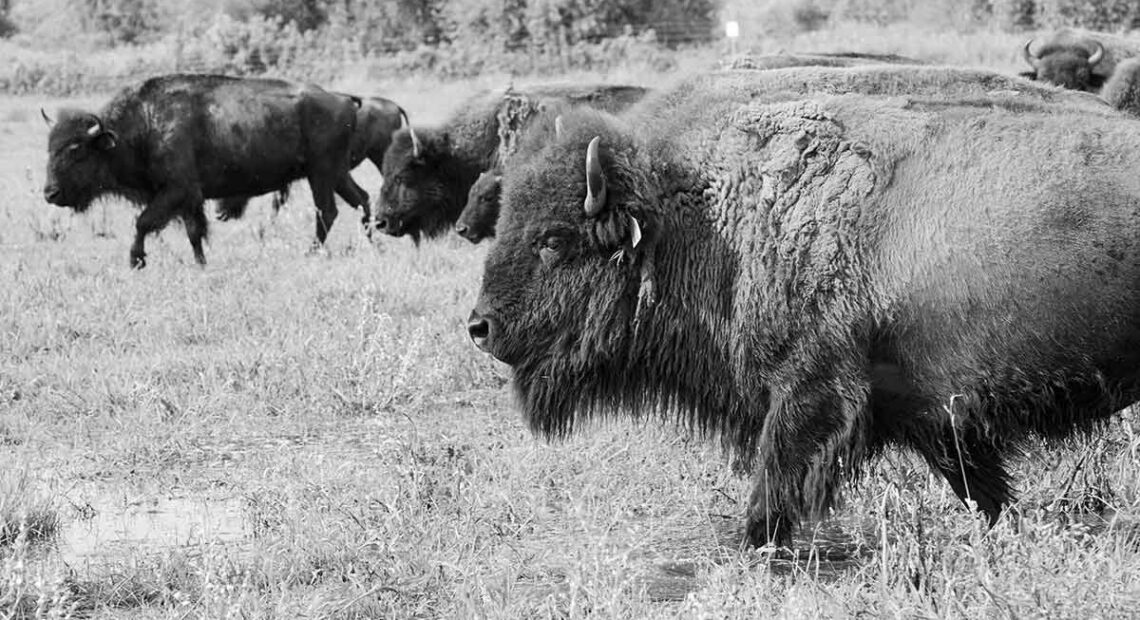
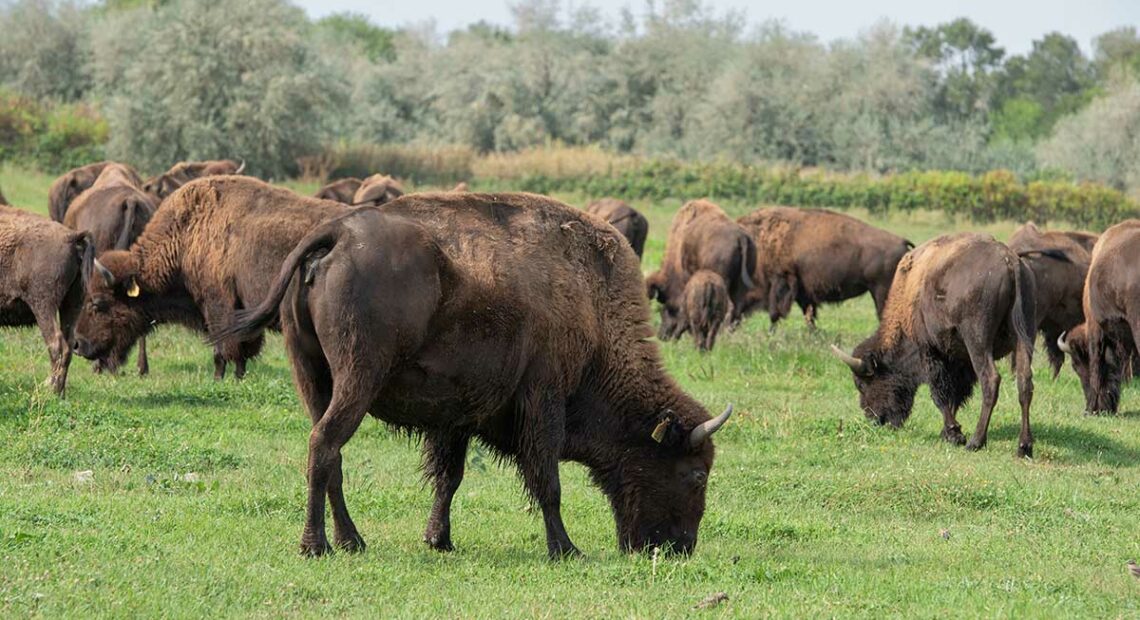
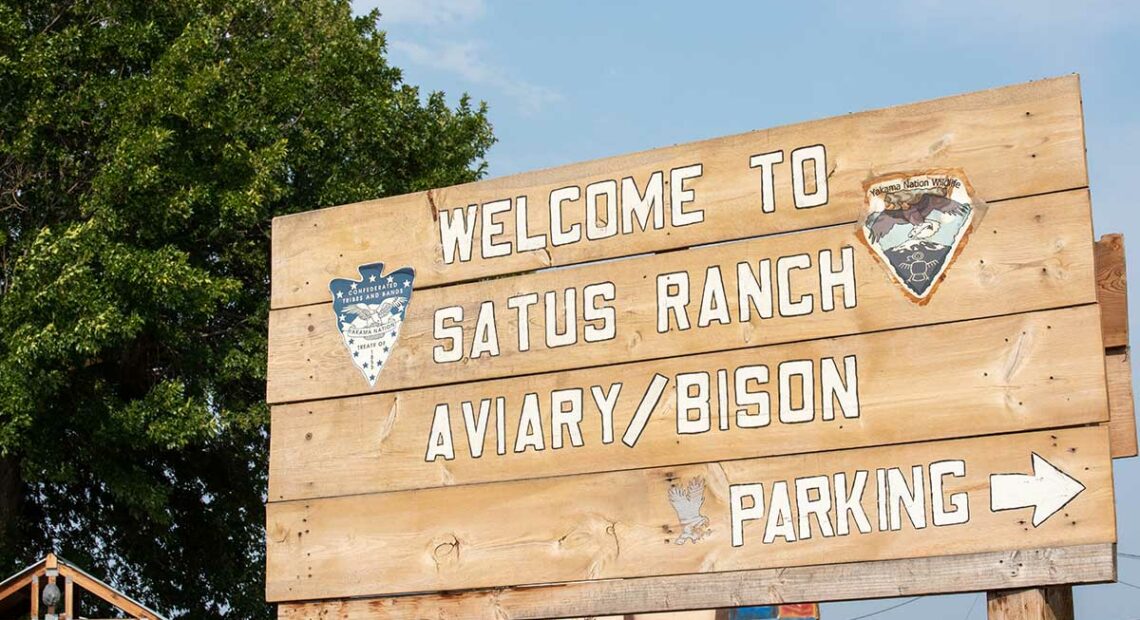
A running buffalo herd is a rare site in Washington. But, on the edge of the Yakima River, not far from an interstate among the hop and corn fields, nearly 200 buffalo roam just outside of the small farming town of Toppenish.
Recently, the Confederated Tribes and Bands of the Yakama Nation brought 26 bison from Yellowstone to provide more pure, more diverse genetics to its existing herd, which the tribes have owned and managed since 1993. It’s all part of a plan to increase food sovereignty for tribal members.
While bison aren’t as culturally significant as salmon and deer, said Yakama Nation Big Game Biologist Kristi Olney, the animal is prized for its lean, healthy meat. The Yakama buffalo program aims to be self-sustaining and provide tribal members access to this healthy, local food source.
“It’s really good food,” said Dawin Sockzehigh, who manages the Yakama Nation buffalo herd and offers the meat for sale. “It’s good meat to eat. I just kind of want to bring that back here to our tribe to let them know that, too.”
NWPB Passport
In addition to exclusive content like the stories above, NWPB also brings you shows like The American Buffalo and Native America. Sign up for NWPB Passport to start streaming your favorite shows today.
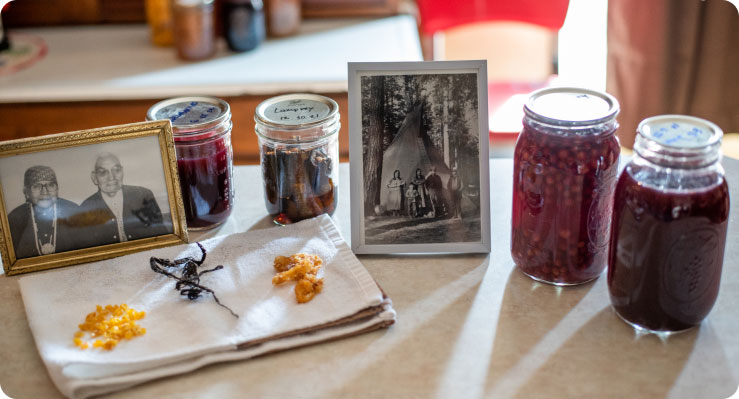
Learn More
Previous
Next


